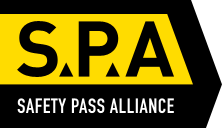A North East based contractor Pyeroy Ltd has been fined due to failings in their work at height rescue planning.
Plymouth Magistrates Court heard that on 21 October 2013 Mr Keith Stevens, aged 57, was helping to dismantle temporary roofing at Devonport Naval Base using a mobile elevated work platform (MEWP). His colleagues found him trapped between a roof beam and the controls of the MEWP. There was a delay in Mr Stevens being lowered to ground. Mr Stevens died of a pre-existing heart condition.
An investigation by the Health and Safety Executive (HSE) found that Pyeroy had not properly planned the work on a MEWP in restricted overhead areas. It was also found that other Pyeroy employees had not received suitable training in the emergency lowering procedure of the elevated platforms and no practice drills had been carried out.
Pyeroy Ltd of St Omers Road, Western Riverside Route, Gateshead has pleaded guilty to breaching Regulation 4 (1) of the Work at Height Regulations 2005. The company has today been fined £130,000 and ordered to pay costs of £14,388.36.
Speaking after the hearing HSE inspector Helena Allum said: “If Pyeroy had trained other employees to use the mobile elevated work platform in emergency situations, Mr Stevens would have been lowered to the ground more swiftly.”
“This case highlights the need for duty holders to properly plan all work at height beforehand, including emergency planning and rescue situations.”
Notes to Editors:
- The Health and Safety Executive (HSE) is Britain’s national regulator for workplace health and safety. It aims to reduce work-related death, injury and ill health. It does so through research, information and advice, promoting training; new or revised regulations and codes of practice, and working with local authority partners by inspection, investigation and enforcement. www.hse.gov.uk
- More about the legislation referred to in this case can be found at: www.legislation.gov.uk/
- HSE news releases are available at http://press.hse.gov.uk[3]



















